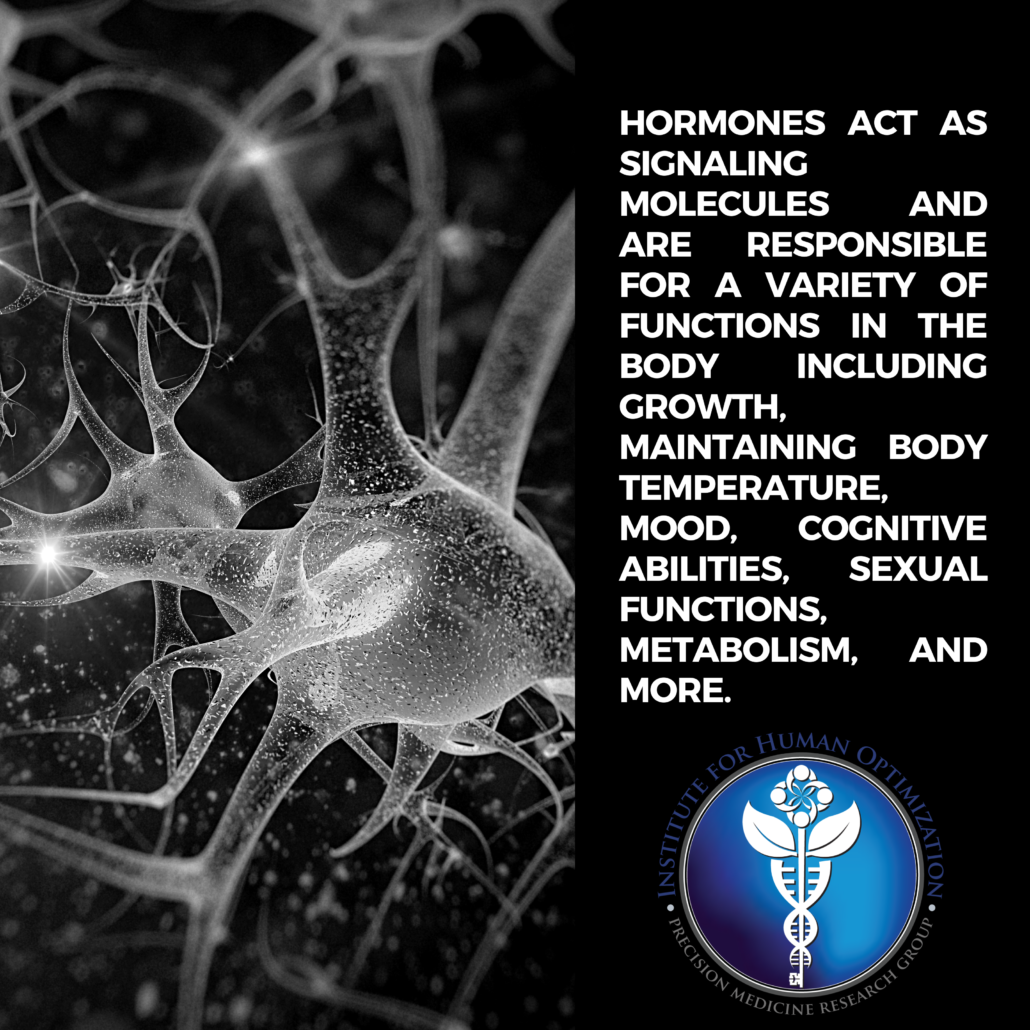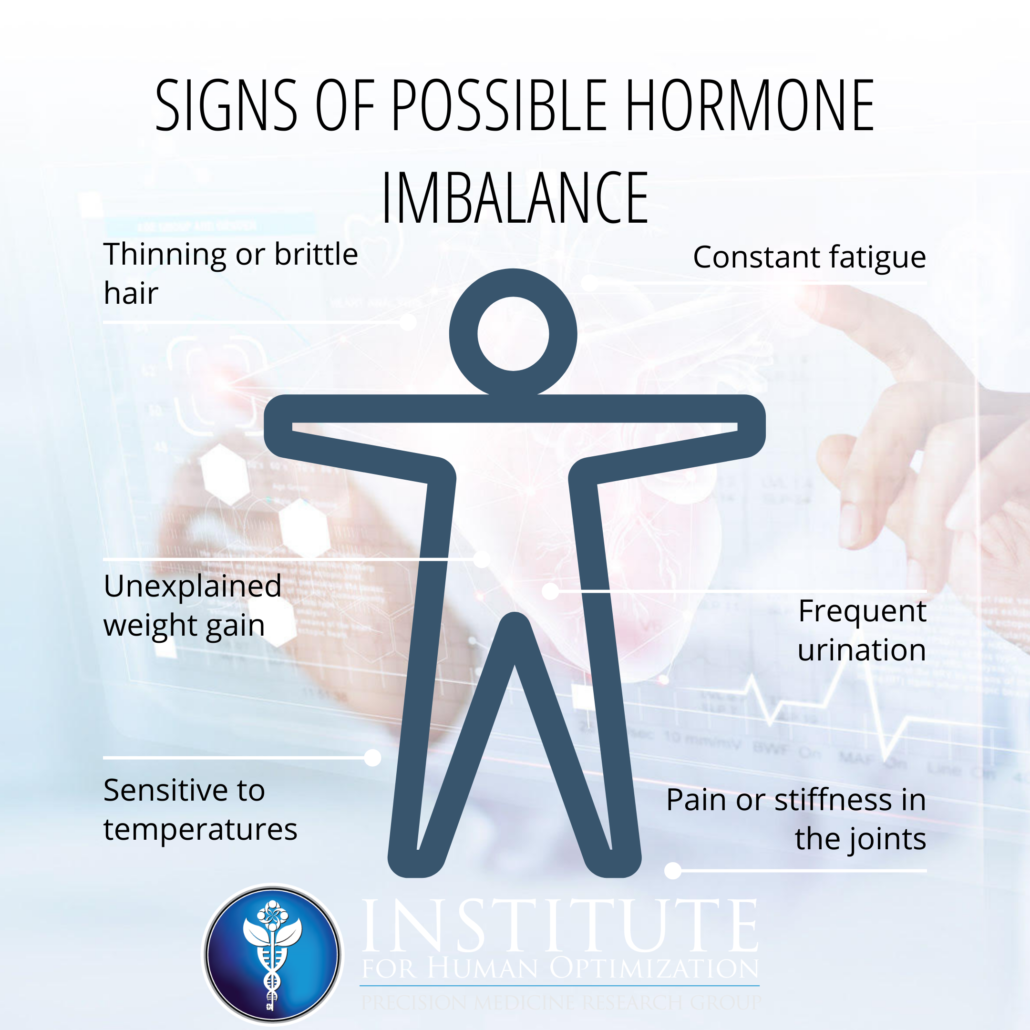There’s a postal service inside of you. A team of messengers carrying instructions through the blood to all your systems, organs, and structures. These messengers are your hormones, secreted by the many glands that make up your endocrine system. Your body is extremely sensitive to hormones, and even a slight imbalance can impact your health. That’s why this month we’re doing a four-part series on the endocrine system, it’s functions, and what you can do to help balance your hormones and live a happier, healthier life.
Hormones act as signaling molecules and are responsible for a variety of functions in the body including growth, maintaining body temperature, mood, cognitive abilities, sexual functions, metabolism, and so many more.

If the endocrine system is a postal service, the anterior pituitary gland is the postmaster. When a hormone comes in from the hypothalamus, it will either trigger the release of the hormone or block it. If the hormone signal gets through, it will then go on to act on endocrine structures, making important things happen in the body.
There are two main categories of signaling: paracrine and endocrine. Paracrine means the signal acts on nearby cells and endocrine uses the circulatory system for transport.
In medical school, students are taught the mnemonic device FLAT PEG to memorize the anterior pituitary hormones. They are:
- FSH (follicle-stimulating hormone)- responsible for controlling women’s menstrual cycles and stimulating the growth of eggs in the ovaries. In men, FSH helps control the production of sperm.
- LH (luteinizing hormone)- works with FSH to regulate the menstrual cycle and reproductive systems. In men, it stimulates the production of testosterone in the testes.
- ACTH (adrenocorticotropic hormone)- aids the adrenal glands to respond appropriately to stress.
- TSH (thyroid-stimulating hormone)- regulates the thyroid gland which is essential to growth and metabolism.
- Prolactin- responsible for breast growth and the production of milk.
- Endorphins- act on the opiate receptors in the brain, reducing pain and boosting pleasure.
- GH (growth hormones)- regulates growth in children and adolescents. Also helps regulate body composition, fluids, muscle and bones, metabolism, and possibly heart function.
Hormone Binding and Regulation
All of the cells in your body are exposed to the hormones floating in your bloodstream. But not all of them are able to react. Specific cells have receptors for specific hormones to act on. These are called “target cells”. When the hormone binds to a target cell’s receptor, it causes a response inside the cell. If the endocrine system is a postal service, the receptor is the mailbox. It will only receive messages meant for that particular cell.
Nuclear receptor sites are proteins within cells that are responsible for sensing thyroid and steroid hormones. Unlike regular cell receptors, nuclear receptors are able to bind directly to DNA and affect gene expression. You can have genes for certain diseases that lie dormant until acted upon by certain factors- hormones are one of these factors.
Hormone binding sites can be upregulated or downregulated depending on what the body needs. Upregulation increases a cell’s sensitivity to a specific hormone while downregulation does the opposite, decreasing the amount of available receptors.
Upregulation and downregulation can happen naturally, or as a response to drugs. For example, during pregnancy, there is an upregulation of receptors that cause the cells in the uterus to become more sensitive to the hormone oxytocin. In the case of drugs, constant exposure to certain substances during adolescence can induce the down or upregulation of genes, manifesting addiction and other mental illnesses that may not have surfaced before due to the effects on the brain’s reward systems.
Hormonal Imbalances
The endocrine system is fragile- even a slight imbalance can have a negative effect on your overall health. Imbalances can be linked to genetic polymorphisms in your DNA, circadian rhythm dysregulation (getting poor sleep), and environmental substances that are foreign to your body.
Some common signs of a possible hormone imbalance include:
- Unexplained weight gain
- Constant fatigue
- Changes in bowel movements (either decrease or increase in frequency)
- Dry skin
- Sensitive to temperatures
- Frequent thirst
- Frequent urination
- Thinning or brittle hair
- Decreased libido
- Pain and stiffness in the joints

At the Institute for Human Optimization, we order a variety of hormone testing for our patients as part of the intake process. Our goal is to get the most accurate representation of a person’s health possible and then move in the direction of increased healthspan and longevity.
Endocrine system health is an underlying variable for a variety of health problems. We strive to use the least invasive procedures first with a focus on prevention, keeping hormone levels properly regulated with proactive lifestyle habits.

